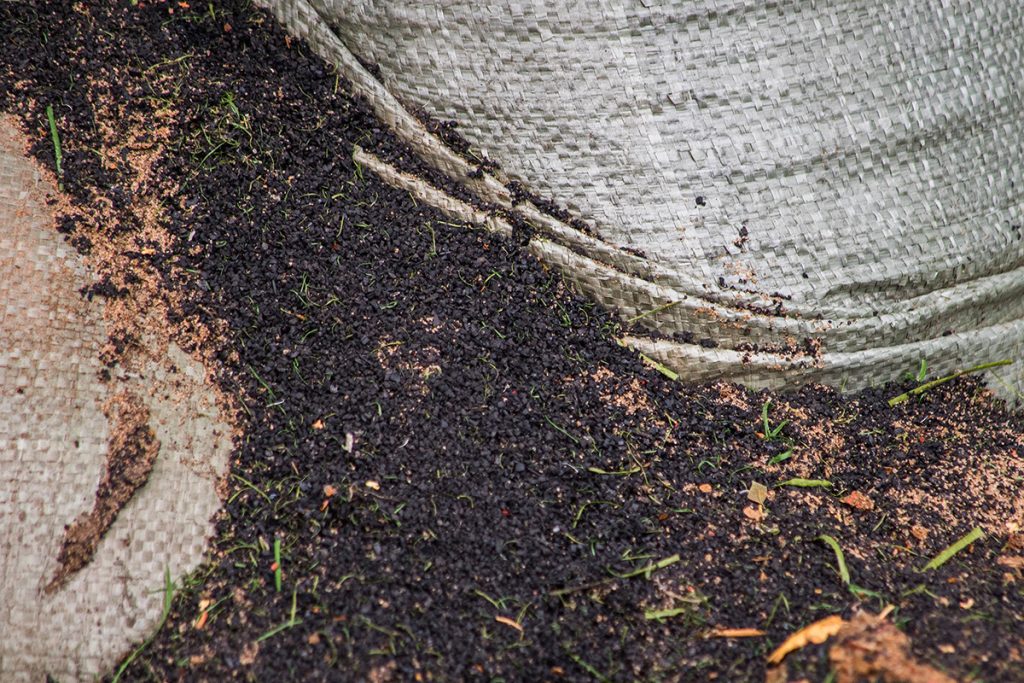To successfully mitigate climate change, alternative energies and sustainable materials like biochar must be integrated into modern agricultural practices.
Comprised of organic animal and plant material, biochar is a type of charcoal that can collect and store carbon. Over the past two decades, thousands of studies have shown that the utilization of biochar can positively impact our environment.
Additionally, biochar can benefit your land by improving soil fertility and health, as well as promoting crop growth.
But to reap the climate change benefits, more farmers and Conservation Reserve Program (CRP) participants will need to incorporate biochar into their practices. Here, we will examine the role of biochar in climate change mitigation and how landowners can take advantage of biochar on their farmland.
What is biochar?
To create biochar, biomass is heated in a low oxygen setting and turned into charcoal through a process called pyrolysis. Plant and animal biomass materials, like wood chips, manure, and compost can be converted into biochar through pyrolysis. This helps reduce the amount of animal and plant waste in landfills, lowering pollution.
Consisting mostly of carbon, biochar can absorb additional carbon from the atmosphere to store in the soil. This carbon can be preserved underground for thousands of years due to biochar’s sponge-like qualities.
This process, known as carbon sequestration, helps reduce the amount of CO2 in the atmosphere. With its carbon-sequestering properties, there is much evidence to suggest that proper usage of biochar could have a significant impact on climate change.
How biochar contributes to climate sequestration
By sequestering carbon in the soil, biochar could help climate change mitigation efforts. With global utilization of biochar, 300-660 million tons of carbon dioxide could be removed from the atmosphere by 2050.
In addition, studies have found that up to 20% more organic carbon can be built in the soil with biochar. The amount of nitrous oxide emissions from the soil can also be lowered by 12-50%, further benefitting the environment.
The benefits of biochar for your farmland
Along with the environmental benefits, biochar can also improve your land, crops, and soil in various ways.
For example, crop yields can be increased from 10 to 42 percent when using biochar, per a review from the journal GCB Bioenergy. The 2021 study analyzed more than 300 scientific articles to determine the impact of biochar on the land as well as the environment.
Per the review, biochar can improve the root systems of plants by reacting with the soil to trigger germination and plant growth. It can also boost nutrients in the soil and prevent the decomposition of organic material to improve soil health. In addition, biochar increases the water storage capabilities of the soil, so more moisture is retained.
The study also concluded that heavy metal concentrations in plant matter decreased by 19 to 39% when using biochar. While the positive effects depend on the type of soil and region, these results show that, with the appropriate implementation, biochar can provide considerable enhancements to your farmland.
Incorporating biochar on your CRP land
Although biochar can improve crop yields, it is even more beneficial for vulnerable soils. By using biochar on your CRP land, you can improve the health of your soil and sequester carbon, bettering the environment and your land at the same time.
Interested in starting a biochar project on your land? Reach out to us at FDCE. Our CRP experts can work with you to develop a plan that will benefit both the climate and your farmland. Send us a message today!

